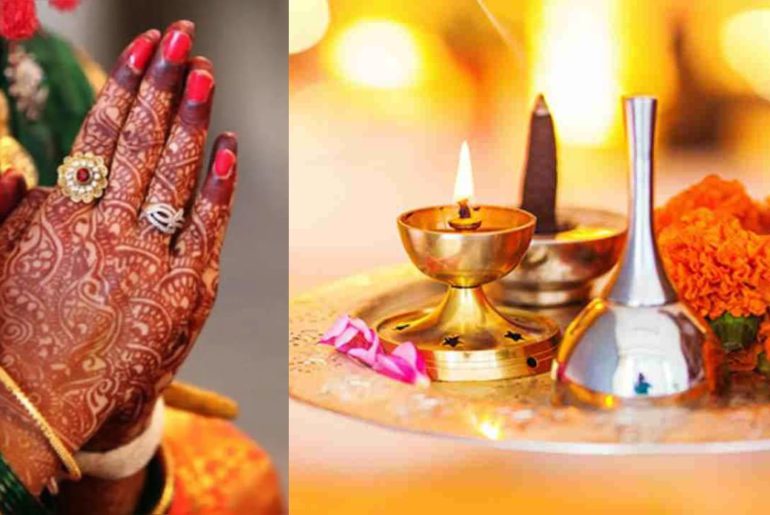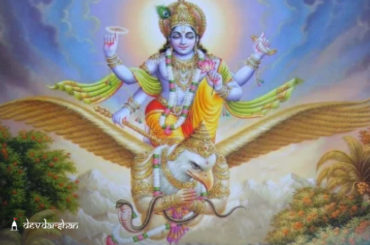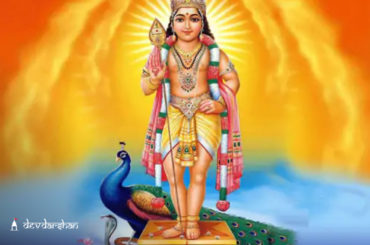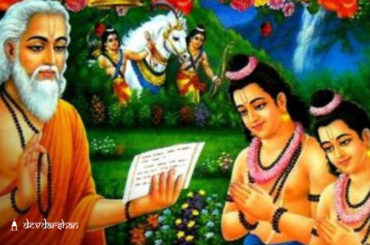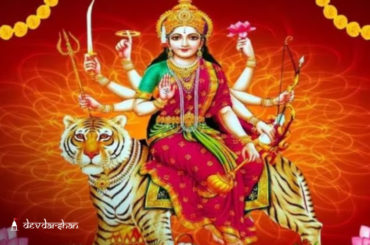Hindu Dharma refers to living a spiritual way of life and fasting holds great significance in Hinduism. It is an integral part of many festivals celebrated in the Hindu Dharma. Various individuals observe various kinds of fasts as per their personal beliefs or based on age-old traditions. The practice of fasting is one of the oldest living faiths in the world and is as old as the origins of Sanatan Dharma. Fasting refers to a self-willed detachment from eating for a certain period of time. There are various Hindu scriptures that depict the reason and methods of fasting. Hindu Puranas describe countless stories and spiritual benefits of fasting. As per medical science too, fasting brings about a number of benefits to the mental and physical health of human beings.
Religious/ Spiritual Benefits of Fasting
There are a number of spiritual or religious benefits of fasting in Hinduism. Some of them are as follows-
- As per the Hindu scriptures, keeping a fast helps to build a beautiful bond between the Supreme Spirit i.e. God and the Individual Spirit i.ee. human beings.
- The main objective behind fasting is to purify the mind and the body and acquire the divine grace of the Lord.
- It helps individuals to develop greater awareness of God and become closer to God spiritually.
- Hindu devotees keep various types of Fasts on various festivals for various purposes. For ex- Women fast for the long life of their husbands on Karwa Chauth Vrat.
- Fasting can also mean an act of sacrifice in which devotees sacrifice their food and hunger for the sake of their faith, devotion and dedication for God.
- In Hinduism, fasting is also an act of penance which helps individuals to get freedom from their past sins.
- Fasting helps to rejuvenate one’s energy, brings back the shifted or diverted focus and builds a stronger sense of connection with the universe.
- Various mythological stories and ancient Hindu texts describe fasting as a form of “Tapasya” in Hinduism. It helps individuals to gain control over their senses which is very important for spiritual oneness with God. If our senses are out of our control, then our mind will always fluctuate which will refrain us from developing sattva- guna (one pointed, focused mind) which is pivotal for spiritual progress.
Scientific Benefits of Fasting
There are numerous scientific benefits of fasting for human beings. Here are some of the most important benefits out of the long list-
- Fasting helps to slow down the aging process and also enhances one’s longevity. There are many studies and survey reports that have claimed promising results in which keeping a fast increasing the level of Human Growth Hormone (HGH), improves metabolism, aids in weight loss and gain in muscle strength which are very important factors for a long life.
- Medical researches point out that intermittent fasting is extremely beneficial for people having type 2 diabetes. It also helps to enhance the sensitivity of the body towards insulin which in turn boosts the metabolic rate by absorbing the right amount of blood sugar.
- As per the WHO (World Health Organisation) reports, most of the deaths in the world are caused due to various types of heart diseases. One of the oldest treatment systems in the world called Naturopathy explains that including fasting into one’s routine life is extremely fruitful in reducing the risk of heart diseases. This is one of the most important scientific benefits of fasting.
- Ayurveda, which is regarded as an ancient Indian medical science, describes that the collection of toxic materials in the digestive system is one of the most significant causes of most of the disorders and diseases in the human body. Fasting helps the digestive organs to get the adequate rest due to which the body cleans and rectifies its own process. Thus, a complete fast for a day is very beneficial for health.
Types of Fasts in Hinduism
1) Prat Upvas:
In Prat Upvas, devotees can eat only twice in the entire day and should skip breakfast in the morning.
2) Adhopvas:
This fasting practice is also known as the evening fast in which devotees can eat only once in the entire day. They’re restricted from eating anything after sunset.
3) Nirjala Upvas:
It refers to the fast in which devotees are restricted from consuming food and drinking water or any liquid. It is considered as one of the most difficult fasts in Hinduism.
4) Ekaharopvas:
In this fast, devotees can consume only one type of food, for ex: they can consume only sabzi in the morning, only roti in the evening and only fruits in the night.
5) Falopvas:
In Rasopvas, devotees cannot consume any type of cereals. They can consume only raw fruits or vegetables, or their juices. No cooked food is allowed. Drinking Milk is prohibited too.
6) Dughdopvas: This fast is called Dugdha Kalp. In this Vrat, devotees can consume milk only during the entire fasting day.
7) Takropvas:
In this fast, devotees avoid consuming ghee and sour food items. This fasting practice can be followed for 2 months at a time.
8) Purnopvas:
This is a fast in which devotees cannot eat anything. They have to sustain for the entire fasting period by drinking water only.
9) Saptahik Upvas:
It refers to the weekly fasting in which devotees fast only for once in a week.
10) Laghu Upvas:
When the Purnopvas i.e. fasting only by drinking water is done for 3-7 days, then it is known as Laghu Upvas.
11) Kathor Upvas:
This vrat is done for the people who are suffering from painful chronic diseases. In this, all the rules and regulations of Purnopvas are followed strictly. The devotees decide the period of their fast as per their wish.
12) Toote Upvas:
It is a cyclic fasting method in which Purnopvas (fast by drinking water only) is done for 2-7 days. Then the Devotees consume natural food for a few days and then go on a fast again. This practice of rotation is carried out till the devotees get what they were seeking from the almighty.
13) Deergh Upvas:
This is a fast again in which Purnopvas is carried out for a number of days but the numbers are pre decided. The numbers can range from 21 to 50 to 60 days. The fast is discontinued when the devotees feel the utter need for food or the fast has detoxified their body.
Some Important Fasts in Hinduism and their Benefits
Pradosh Vrat–
Pradosh Vrat is a famous fast in Hinduism dedicated to Lord Shiva. On this day, the devotees perform a Puja during the Pradosh Kaal i.e about an hour and a half before and after the Sunset. According to Hindu mythology, a devotee who hears or recites the Pradosh Vrat Katha post Shiva puja on the day of the Vrat never suffers from impoverishment for a hundred births. Devotees fasting on this day get the blessing of living a comfortable life and attain Moksha.
Karwa Chauth Vrat–
Karwa Chauth is a famous Hindu festival celebrated by married women with a lot of grandeur in India. On this day, women observe a strict fast for the safety, well-being, prosperity and longevity of their husbands. The devotees offer prayers to Lord Shiva, Maa Parvati and Lord Ganesha on this day. Generally, all the women get dressed up in red and break their fast only after seeing the moon and making offerings to it in the evening.
Navratri Vrat–
Navratri is one of the most widely celebrated festivals of India in which devotees fast for 9 nights in devotion of the 9 incarnations of Maa Shakti/ Durga. This fast is considered extremely fruitful for the fulfillment of all kinds of wishes, be it wealth, prosperity, name, fame, peace, happiness, progeny, success in Job etc. Beautiful pandals of Maa Durga are made and Maa is adorned with Shringaar and vermilion. This fast also helps the Devotees to get rid of their past sins and reduces the pain related to chronic diseases.
Ganesh Chaturthi Vrat–
In Sanatan Dharma, worshipping Ganadhipati Ganesh, the Vignaharta i.e. the Remover of all obstacles, is worshipped before any new beginnings or auspicious works. However, worshipping him and keeping a fast on the occasion of Ganesh Chaturthi, i.e. the birth anniversary of Lord Ganesha is considered extremely fruitful and auspicious. Lord Ganesha is often known as the Lord of wisdom. Therefore, there are many significant benefits of fasting on this day, especially for students who want to excel in education and for people who are seeking a job or want to excel in their business.
Shivratri Vrat–
Shivratri Vrat is one of the most significant Vrats observed by the majority of Hindu devotees, dedicated to Lord Shiva, the creator of the universe. This fast is said to ward off evil eyes and negative energies from a devotee’s life and fill the surroundings with positive energy. This fast also helps in controlling the 7 vices in human beings namely anger, lust, jealousy, greed, arrogance, delusion and ego.
Janmastami Vrat–
Shri Krishna Janmashtami, one of the most important and popular festivals in Hinduism, is celebrated with great zeal and enthusiasm across the country. It celebrates the birth anniversary of Lord Krishna, the eighth incarnation of Lord Vishnu. According to Hindu religious beliefs, there are great benefits of fasting on Krishna Janmastami. Fasting with full devotion on Janmashtami leads to progeny, longevity, happiness and prosperity. It also helps to reduce the malefic effects of Pitra Dosha in the birth chart. Keeling this fast also helps the Devotees to get rid of Shani Dosha. For planetary peace and to get rid of all the planetary defects, chanting ‘Om Namo Bhagavate Vasudevaya’ mantra for 108 times on this day is considered very auspicious.
Ram Navami Vrat–
Ram Navami is celebrated on the Shukla Paksha of the Chaitra month according to the Hindu calendar. According to mythological beliefs, on this day, Lord Vishnu was born in the form of Rama in King Dasharatha’s palace. This day is celebrated by most of the Hindus with elaborate pujas and rituals at their residences and in various temples. It is believed that fasting on Ram Navami, with dedication, brings good health, wealth, prosperity, abundance, peace and Happiness in the lives of the Devotees. Many devotees also recite the Ramcharitamanas on this day which helps to remove unwanted obstacles and troubles from one’s life.
Ekadashi Vrat–
Ekadashi Vrat i.e. fasting on the 11th day of every month is a very significant fast in Hinduism. There are many popular Ekadashi fasts such as Amalaki Ekadashi, Parivartini Ekadashi, Dev Uthani Ekadashi, Yogini Ekadashi, Aja Ekadashi etc. There are many important benefits of fasting on Ekadashi. Fasting on the Ekadashi day helps the Devotees to get rid of their past sins and attain salvation. It also purifies the mind, body and the soul of the individuals. It brings mental peace and stability and encourages individuals not to give up and keep trying to achieve success in life. The fast brings about a new, rejuvenated energy in one’s which which helps in having greater focus and concentration in work and hence success.
Check out about various Online Puja and services provided by DevDarshan here and get your bookings done in one click. If you want to know more about Indian culture, Indian Temples, Pujas and festivals, then download the DevDarshan App. Don’t forget to share this blog if you liked it.

